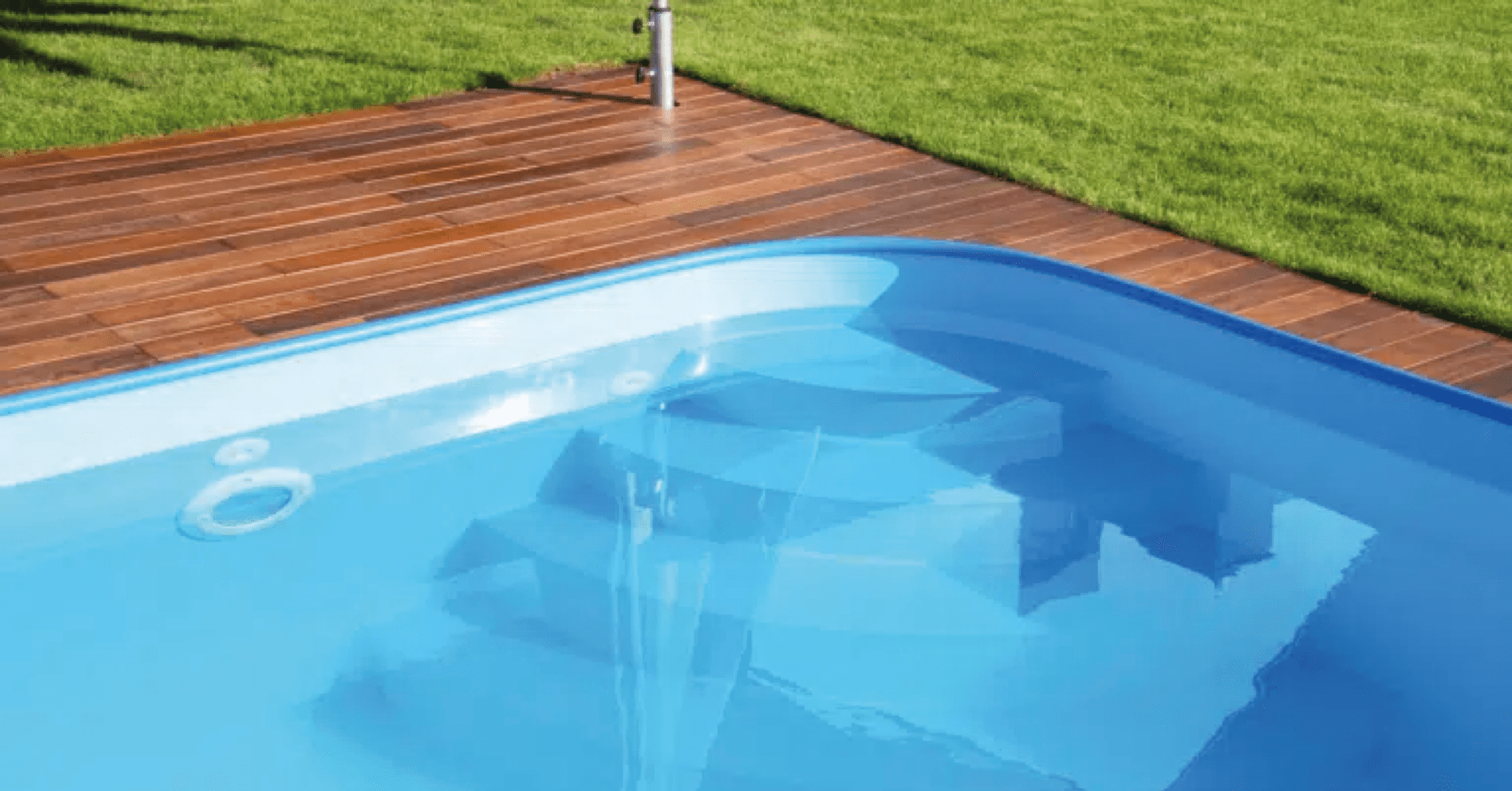Choosing the right material for your pool deck: Complete guide
Introduction:
Creating a terrace around your swimming pool is an excellent way of enhancing the aesthetics of your outdoor space and creating an area for relaxation and entertainment. When opting for a deck on adjustable pedestals, it’s crucial to choose the right material that will meet your aesthetic preferences, practical needs and safety requirements. In this article, we’ll take a closer look at the different materials recommended for pool decking, explaining their respective advantages and disadvantages. Let us help you choose the ideal material for your pool deck!
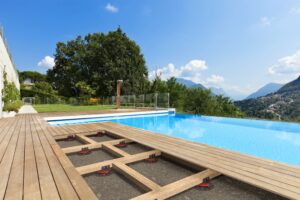
-
Natural wood :
Natural wood is a classic choice for pool decks. It offers a warm, natural beauty that blends perfectly into outdoor environments. Exotic woods such as teak and ipe are particularly prized for their resistance to moisture and insects. However, natural wood requires regular maintenance, such as the application of protective treatments and periodic sanding to maintain its appearance and prevent degradation.
Advantages:
- Aesthetically appealing with a warm, natural look.
- Resistant to moisture and insects (depending on wood type).
- Can be repaired or sanded to remove scratches or stains.
Disadvantages:
- Requires regular maintenance, including application of protective products.
- Risk of rot or degradation over time.
- Higher initial cost than other materials.
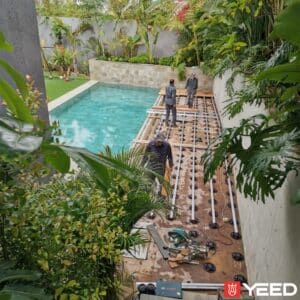
-
Composite wood :
Wood composite decking has become increasingly popular due to its durability and ease of maintenance. Made from a blend of wood fibers and plastic, these materials mimic the natural look of wood while offering enhanced resistance to moisture, UV and stains. Composite decking requires no regular treatment and is generally easy to clean with mild soap and water.
Benefits:
- High resistance to moisture, UV and stains.
- Low maintenance and easy to clean.
- Available in a variety of colors and textures to suit different styles.
Disadvantages:
- Can be more expensive than natural wood.
- Risk of discoloration or scratches over time.
- Lower-quality composites may warp or crack.
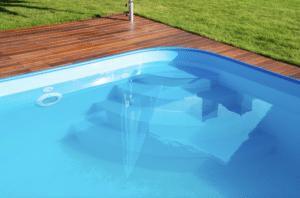
-
Natural stone or ceramic tiles:
Natural stone or ceramic tiles are an elegant and durable option for pool decking. Natural stone, such as travertine or sandstone, offers a unique aesthetic with variations in color and texture. Ceramic tiles, meanwhile, are available in a range of patterns and finishes, offering great design flexibility. These materials are weather-resistant and low-maintenance, although they can be more slippery when wet, so it’s essential to choose non-slip surfaces.
Advantages:
- High-end aesthetics and variety of finishes available.
- Moisture and weather resistance.
- Low maintenance and long-term durability.
Disadvantages:
- Higher initial cost than other options.
- Natural stone surfaces may require periodic sealing.
- Smooth surfaces can become slippery when wet.
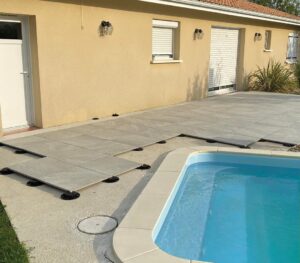
Conclusion:
Choosing the ideal material for your pool deck is an important decision that will have a significant impact on the appearance, durability and maintenance of your outdoor space. Carefully weigh up the pros and cons of natural wood, wood composites and stone or ceramic slabs, taking into account your aesthetic preferences, budget and maintenance requirements. By making an informed choice, you’ll be able to create a beautiful, functional pool deck that will bring you years of summer pleasure.
